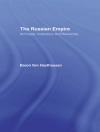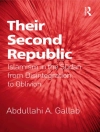Civil-military relations have been a consistent theme of the history of the Weimar Republic. This study focuses on the career of General Walther Reinhardt, the last Prussian Minister of War and the First Head of the Army Command in the Weimar Republic. Though less well known than his great rival, Hans von Seeckt, Reinhardt’s role in forming the young Reichswehr and his writings on warfare made him one of the most important and influential military figures in interwar Germany. Contrary to the conventional view that civil-military relations were fraught from the outset, the author argues, Reinhardt’s contribution to the military politics of the Weimar Republic shows that opportunities for reform and co-operation with civilian leaders existed. However, although he is primarily seen as a liberal General, this study demonstrates that he was motivated by professional military considerations and by the specter of a future war. His ideas on modern warfare were amongst the most radical of the time.
Inhaltsverzeichnis
List of Abbreviations
Acknowledgements
Chapter 1. Introduction
Chapter 2. Reinhardt in Peace and War, 1872–1918
Chapter 3. Coming to Terms with the New Regime
Chapter 4. Setting the Agenda on Military Policy, January–June 1919
Chapter 5. Reinhardt and the Treaty of Versailles
Chapter 6. The Formation of the Reichswehrministerium
Chapter 7. The Kapp Putsch and the Failure of Reinhardt’s Military Policy
Chapter 8. Reinhardt and Military Politics in the 1920s
Chapter 9. The Reinhardtskurse and Reinhardt’s Military Thought
Chapter 10. Conclusions
Bibliography
Index
Über den Autor
William Mulligan received his Ph. D. from the University of Cambridge. He is now teaching modern history at the University of Glasgow.












